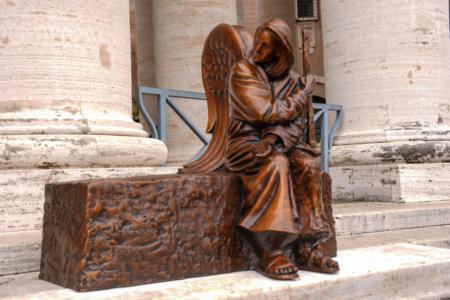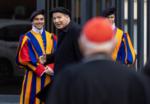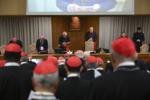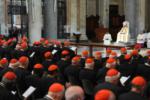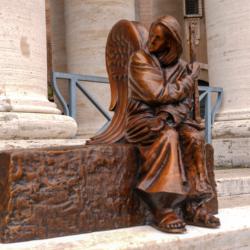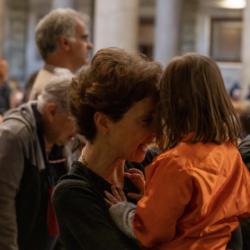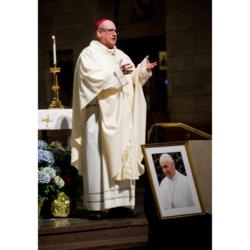Notes from the Hill: Legislators challenge SJC, claim court lacked jurisdictionto redefine marriage
As the May 17 deadline nears after which a trial court must carry out the same-sex marriage decision of the Supreme Judicial Court (SJC), the challenges to that decision continue. Perhaps the most serious challenge was filed April 27 by 13 legislators.
These legislators argued that the courts lacked the authority to hear the same-sex marriage case from the very beginning. In legal terms, the judicial branch had no “subject matter jurisdiction” to redefine marriage. In motions filed with the SJC on April 27, the legislators cited a section of the state constitution that states, “All causes of marriage, divorce and alimony, all appeals from the Judges of probate court shall be heard and determined by the Governor and Council, until the Legislature shall, by law, make other provisions.” (Part 2, chapter III, article V)
No other state constitution contains such a provision. The Massachusetts language originated from early practices in England whereby Parliament, and not the secular courts, heard divorce cases. Pursuant to the provision, the Massachusetts Legislature has transferred authority from the governor and governor’s council to the courts only to hear marriage cases dealing with divorce, alimony, affirmation and annulment. The case filed by the seven same-sex couples in Goodridge vs. Department of Public Health did not concern any of these matters. Instead, it was a “cause of marriage” seeking to redefine marriage itself, a subject not granted to the courts by the Legislature.
Early in the Goodridge litigation, the Massachusetts Catholic Conference urged the attorney general’s office, as the representative of one of the main parties in the case, the state, to raise the jurisdiction issue, but nothing ever came of that request. Friend-of-the-court briefs made the argument to the trial court and SJC, but the courts ignored it. Having the issue raised but ignoring it is not the same as deciding it. Other court decisions talk about the obligation of judges to resolve in the first place whether they have jurisdiction to hear a case. That was never done in Goodridge. The 13 legislators want to intervene because they are upset not only with the court’s overreaching of authority, but also with its failure to even explain how it had any authority to take the case without the Legislature’s approval.
As long as this question is ignored by the SJC, the new same-sex marriage licensing policy will be subject to what the lawyers call “collateral attack.” That is, say that a same-sex couple gets a marriage license in Massachusetts and then goes into federal court to claim a right to federal social security benefits as married spouses. The federal court can dismiss the claim on the grounds that the SJC’s jurisdiction to authorize the license was never proven. In other words, a huge cloud will hang over the licenses and their enforceability, making them vulnerable to attack in other cases.
Many people do not expect the jurisdiction challenge to succeed, given the SJC’s proven desire to disregard thousands of years of tradition to redefine marriage. How can an obscure jurisdictional clause carry any more weight? Let’s see what the SJC does. At the very least, their power grab has been made more obvious. Thanks should be extended to State Reps. Asselin, Carron, Correia, deMacedo, Hargraves, Lantigua, Larkin, Lepper, Miceli, Poirier, Scaccia, Spiliotis and Travis for calling the judges to task.
“Notes from the Hill” is provided by the Massachusetts Catholic Conference (MCC), the public policy voice for the four Catholic dioceses of Massachusetts. “Notes from the Hill” is not an official statement of the bishops of Massachusetts or MCC.
